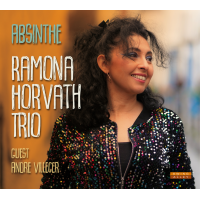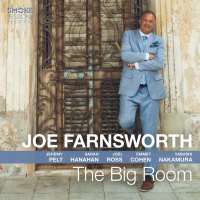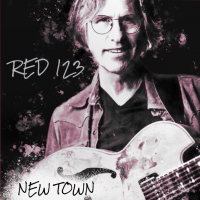Home » Jazz Articles » Anouar Brahem
Jazz Articles about Anouar Brahem
Montreal Jazz Festival 2011
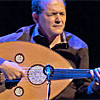
by John Kelman
Days 1-3 | Days 4- 6 Festival International de Jazz de Montréal Montreal, Canada June 25- July 4, 2011After a hiatus in 2010, in order to take a three-week Norwegian road trip, it's great to get back to the festival that the Guinness Book of Records calls “The biggest jazz festival in the world." But for those who think such a designation has to mean a populist-driven festival, geared towards accessibility and big ...
Continue ReadingAnouar Brahem: The Astounding Eyes of Rita

by AAJ Italy Staff
Il musicista tunisino Anouar Brahem aggiunge un altro tassello alla sua personale sintesi di oriente e occidente. Dopo il capitolo in trio con Jean-Louis Matinier e François Couturier documentato da due album (Le pas du chat noir e Le voyage de Sahar), decisamente orientato verso un impressionismo cameristico di stampo europeo, ritorna alla dimensione più mediorientale dei suoi primi lavori con questo CD, inciso in compagnia di un quartetto misto che vede l'oud di Brahem accompagnato dal clarinetto basso di ...
Continue ReadingAnouar Brahem: The Astounding Eyes of Rita
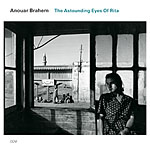
by Dan McClenaghan
The Astounding Eyes of Rita rings to life on four resonant notes from Tunisian oudist Anouar Brahem, joined in short order by the deep, rich tone of Klaus Gesing's bass clarinet. The music sounds ancient, like something from an old civilization, full of past truths that still hold true. Manfred Eicher, the man in charge at ECM Records, has been known to inspire, from talented artists, consistently beautiful and sometimes eccentric (American ethno-centricity speaking) music from unusual instrumental ...
Continue ReadingAnouar Brahem: The Astounding Eyes of Rita

by John Kelman
In the world of the oud--the fretless, Middle Eastern incarnation of the lute--there are three artists who are moving the instrument--and its centuries-old tradition--forward. Tunisian-born Dhafer Youssef has explored the integration of technology and western classicism on Divine Shadows (Jazzland, 2006), while Lebanese-born Rabih Abou-Khalil has investigated a nexus with horn-driven large ensemble on The Cactus of Knowledge (Enja, 2001). Anouar Brahem, since first emerging on ECM with Barzakh (1991), has explored more nuanced territory, between his longstanding Astrakan Café ...
Continue ReadingAnouar Brahem: Le voyage de Sahar
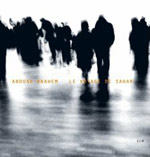
by AAJ Italy Staff
Grande virtuoso dell'oud e ormai da molti anni alfiere dell'etichetta ECM, il tunisino Anouar Brahem prosegue con questo Le voyage de Sahar il suo viaggio tra i piú disparati scenari musicali, che lo ha visto collaborare con artisti del calibro di Jan Garbarek, John Surman, Barbaros Erköse, Dave Holland. Questa volta, come raramente gli accade, si tratta della replica di uno dei suoi incontri precedenti, dato che sono di scena due musicisti francesi come il pianista Francois Couturier e il ...
Continue ReadingAnouar Brahem: Innovative Weaver of Musical Heritages

by Eyal Hareuveni
Tunisian oud player Anouar Brahem's eighth solo release, Voyage de Sahar (ECM, 2006), is another testimony to the magnificent way that he manages to weave influences and references from the rich and beautiful heritage of Arabic world with elements of Andalusian music and modern jazz, and to the innovative way in which Brahem suggests the oud as a leading instrument in Western and Arabic music. For the first time in his 15-year relationship with the prestigious German ECM label, Brahem ...
Continue ReadingAnouar Brahem: Le Voyage de Sahar

by Budd Kopman
Tunisian oudist Anouar Brahem has recorded for ECM since 1990; Le Pas du Chat Noir (2002) achieved the most critical acclaim. The trio which made that record comes together again for Le Voyage de Sahar, creating an understated tour de force that builds on the former album. While the “ECM sound" very much helps create the feeling, the image of a spotlight on the trio, otherwise surrounded by darkness, playing to a massive, totally silent, mesmerized audience, keeps appearing. The ...
Continue Reading




